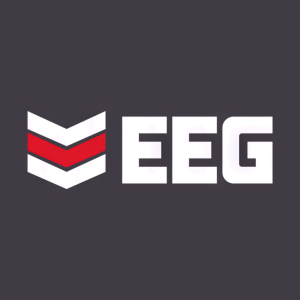Esports Entertainment Group Files Form 15 to Voluntarily Deregister and Suspend its SEC Reporting Obligations
Rhea-AI Summary
Esports Entertainment Group (GMBL) has filed Form 15 with the SEC to deregister its common stock and other securities, and to suspend its reporting obligations under the Securities Exchange Act of 1934. This action follows the recent delisting from the Nasdaq Stock Exchange. The move aims to reduce the complexity and costs associated with public reporting and to allow the management team to better focus on core business activities. The deregistration will become effective within 90 days, suspending the need for periodic filings such as Forms 10-K, 10-Q, and 8-K. The company's business operations remain unaffected by this change.
Positive
- Reduction in complexity and costs associated with public reporting.
Negative
- Suspension of SEC reporting obligations may reduce transparency for investors.
- Recent voluntary delisting from Nasdaq indicates potential financial instability.
News Market Reaction – GMBL
On the day this news was published, GMBL declined NaN%, reflecting a moderate negative market reaction.
Data tracked by StockTitan Argus on the day of publication.
St. Julian's, Malta--(Newsfile Corp. - July 9, 2024) - Esports Entertainment Group, Inc. (OTCQB: GMBL) (OTCQB: GMBLP) (OTC Pink: GMBLW) (OTC Pink: GMBLZ) ("Esports Entertainment", "EEG", or the "Company"), a global iGaming company and business-to-business (B2B) esports content and solutions provider, today announced that it filed a Form 15 with the Securities and Exchange Commission (the "SEC") to deregister its common stock, common purchase warrants and
The deregistration is aimed at further reducing the complexity and costs of public reporting following the recent voluntary delisting of its securities from the Nasdaq Stock Exchange, and allowing the management team to focus their efforts on the Company's core business activities. The deregistration does not otherwise impact the Company's business operations.
About Esports Entertainment Group
Esports Entertainment Group is a global MGA-licensed, "esports-focused" iGaming B2C operator and a US-focused B2B provider of esports solutions. The Company owns and operates the world's leading esports venue management system, currently deployed in over 1000 global locations, including more than 200 colleges and universities. The Company's strategy is to capitalize on the multi-billion-dollar market for esports and esports wagering by leveraging its leading position in the industry. The Company is also targeting the rapidly growing market for short-form esports wagerable content, which features competitive, short-cycle head-to-head leagues that are optimized for betting. In addition to its plans to distribute esports content, the Company currently provides B2C-focused wagering through its MGA-licensed suite of brands. For additional information about the Company, please visit www.esportsentertainmentgroup.com.
Forward-Looking Statements
The information contained herein includes forward-looking statements, as defined in the Private Securities Litigation Reform Act of 1995. Forward-looking statements generally can be identified by words such as "anticipates," "believes," "estimates," "expects," "intends," "plans," "predicts," "projects," "will be," "will continue," "will likely result," and similar expressions. These statements relate to future events or to our strategies, targeted markets, and future financial performance, and involve known and unknown risks, uncertainties and other factors that may cause our actual results, levels of activity, performance, or achievements to be materially different from any future results, levels of activity, performance or achievements expressed or implied by these forward-looking statements. You should not place undue reliance on forward-looking statements since they involve known and unknown risks, uncertainties and other factors which are, in some cases, beyond our control and which could, and likely will, materially affect actual results, levels of activity, performance or achievements. Factors that could cause or contribute to such differences include, but are not limited to, those discussed in our most recent Annual Report on Form 10-K and subsequent Quarterly Reports on Form 10-Q, and those discussed in other documents we have filed with the SEC including, our obligations under our outstanding secured debt and preferred stock, as amended, the settlement agreement with the holder of our secured debt, Series C Preferred Stock and Series D Preferred Stock, our ability to effectively deregister our securities along our anticipated timeline, our capital and liquidity needs, and our ability to continue as a going concern. Any forward-looking statement reflects our current views with respect to future events and is subject to these and other risks, uncertainties and assumptions relating to our operations, results of operations, growth strategy and liquidity. We assume no obligation to publicly update or revise these forward-looking statements for any reason, or to update the reasons actual results could differ materially from those anticipated in these forward-looking statements, even if new information becomes available in the future, unless required by law. The safe harbor for forward-looking statements contained in the Private Securities Litigation Reform Act of 1995 protects companies from liability for their forward-looking statements if they comply with the requirements of such Act.
Contact:
Email: ir@esportsentertainmentgroup.com

To view the source version of this press release, please visit https://www.newsfilecorp.com/release/215993







